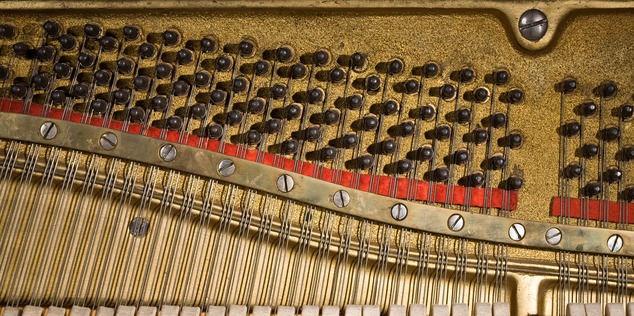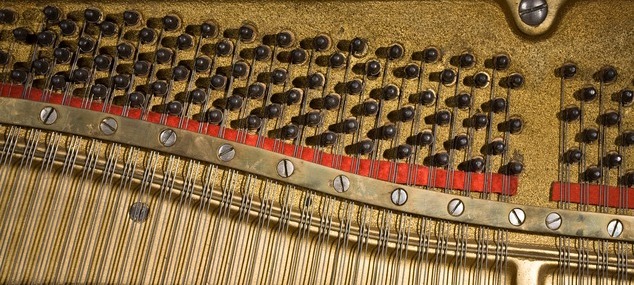Thinking of tuning your own piano? Think again. There is an art form to piano tuning, and even the professionals agree that it takes hundreds of tunings to perfect the skill.
The average piano tuning for a professional can take anywhere from 1 to 2 hours of time. If you’re a novice trying it on your own, double, triple or even quadruple that time period, knowing you may never achieve the results you are looking for. Add into it the fact that the longer it takes to tune, the more exhausted your ears become to the note precision, meaning it becomes harder and harder to hear the tonality quality you are looking for.
But I know how to tune a guitar, isn’t it the same thing?
They are both instruments; they both have strings, unfortunately that’s where the similarities end. Each piano’s temperament is tuned differently depending on the structure of the piano. Each brand, each style has their own unique gauges and lengths of strings. Therefore what works on one piano may not work precisely in the same manner on another. Professionals use tools and software, as well as acoustic tests to calculate how to precisely tune each piano.
Can’t I just buy a tool to adjust the strings?
While anyone can buy the tools needed to tune a piano, knowing how to use them is a different story. To tune a piano, the tuning pin and string must be set and secured by the tuner. A tuner will move the pin only as much as needed to get the desired pitch; then the pin is set in place. If its not done correctly, one strike of the key and the note will pop out of tune. This is called tuning stability. Its one of the last things a professional tuner masters because of the detailed process of the work.
What if a string is broken?
Occasionally strings break on a piano, especially if they are old and brittle. During the tuning process, if a string is adjusted too far sharp, it may snap. Which means the string must be replaced. A professional tuner will have the proper tools to remove the action, remove the string, and replace it with new wire. If your piano has been restored and in original state, your tuner will also understand how to retain its value as a restored instrument, choosing only the highest of quality wire that will ensure it remains as original as possible.
Can I just put off tuning for awhile? Does it really need it regularly?
With everything that goes on in our busy lives, taking the time to tune a piano on a regular basis may be something that falls to the wayside. Pianos need regular tuning to retain their value. It doesn’t matter how much its played, or even if its been played at all. Only regular tuning will keep a piano up to its full potential. If you choose to put off tuning, it may require several passes at tuning to raise the pitch, before a final tuning refines the tonal quality, providing clean unisons and octaves. That requires more time, more risk for repair work needed, and more money and effort down the road.


